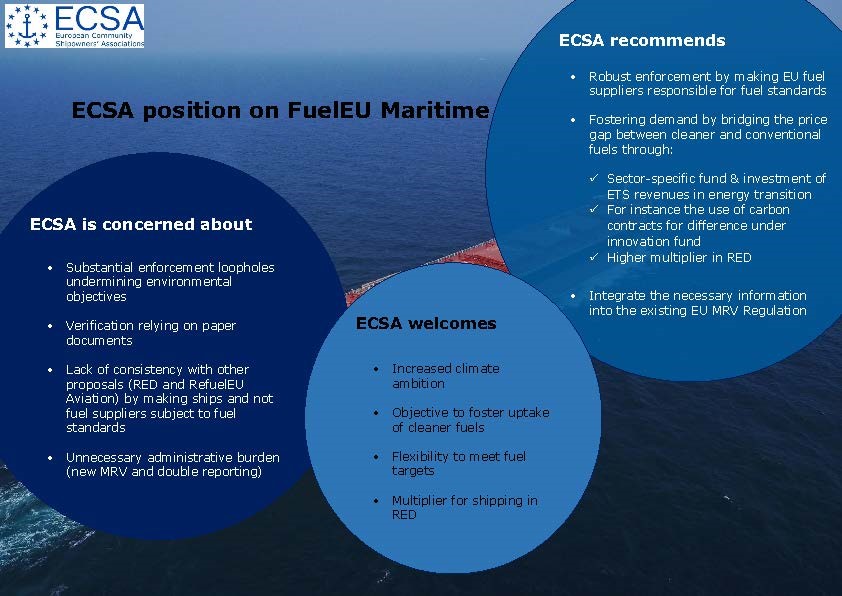
Infografica riassuntiva del position paper sulla proposta FuelEu
ECSA published today its position paper on the FuelEU Maritime proposal. European shipowners welcome the increased climate ambition of the ‘Fit for 55’ package, recognising that the climate crisis is one of the greatest humanitarian, economic and environmental challenges our societies are facing.
“Even though an international solution for shipping would be preferable, shipping should contribute its fair share to address the climate crisis, at EU level as well. ECSA supports the objective of the FuelEU Maritime proposal to foster the market uptake of cleaner fuels that are currently not affordable or commercially available. However, the proposal should be more consistent with other proposals of the ‘Fit for 55’ package and with the overall increased climate ambition of the EU” said Claes Berglund, ECSA’s President.
Under the current proposal enforcement for biofuel blends purchased outside the EU will rely only on paper documents provided by non-EU fuel suppliers. Using these documents to calculate carbon savings contributing to the EU’s climate targets, may create substantial loopholes and, ultimately, an enforcement minefield.
“FuelEU may become a missed opportunity for the uptake of clean fuels in the sector. Making the EU fuel suppliers responsible for meeting the fuel standards will substantially address the enforcement concerns. Fostering demand is key and the EU ETS revenues, the carbon contracts for difference under the EU ETS innovation fund and a higher multiplier under the Renewable Energy Directive should be used to bridge the price differential between cleaner and conventional fuels” said Sotiris Raptis, ECSA’s acting Secretary General.
Flexibility is welcome but a new MRV system is unnecessary and burdensome. Finally, ships should not be penalised when Onshore Power Supply is not available in ports.
You can read our position paper here.
You can read the summary of our position here.
For press and media inquiries, please contact ECSA Communications/PR Senior Advisor – Francesco Tanzi, Francesco.Tanzi@ecsa.eu
